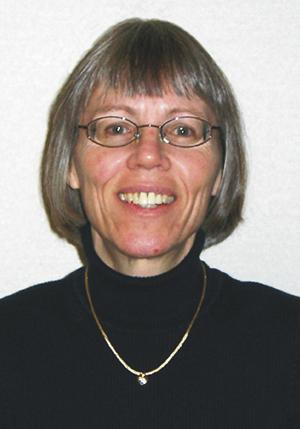
By Barb Arland-Fye
Many e-mails and news articles I have been reading about the crisis in Gaza show no tolerance for Israel’s aggressive response to rocket attacks fired by Hamas, the paramilitary organization that controls Gaza. Catholic News Service articles and photo captions portray the Palestinians as victims of shocking aggression by the Israelis.
Then an e-mail letter arrived from a Jewish friend, Rabbi Henry Karp, who leads Temple Emanuel in Davenport and is an eloquent writer with a deep commitment to social justice.
The letter presents his view of what led up to the latest provocation and what is required to achieve peace. I asked permission to publish the letter as a guest opinion in this week’s Catholic Messenger. It appears on Page 9.
Full disclosure is important here. Rabbi Karp and his wife, Cantor Gail Posner Karp, are longtime friends — in fact, my husband and I had dinner with them New Year’s Day. We discussed the situation in Gaza. Rabbi Karp’s view toward achieving peace in this situation is different than mine, yet I find his argument thought-provoking.
The New York Times reported Jan. 6 that 550 people have been killed in Gaza as a result of Israeli air strikes that began late last month, followed by a ground war. At least one-quarter of the dead are civilians, the Times said, referring to U.N. estimates. More than 2,200 people have been injured. Rabbi Karp believes that Hamas puts civilians in harm’s way to achieve its goals and gain world sympathy in the process.
I am a firm believer that weapons are never the answer to solving problems and have serious reservations about Israel’s approach to bombing its way toward peace. Photos and stories of real, suffering people — whose needs are no different than mine — leave a lasting impression. Israel’s retaliation appears to be widening the scope of animosity. Palestinians in the West Bank are enraged by the bloodshed in Gaza and have protested against it.
“Israel’s week-old assault on the Gaza Strip has widened the rift between Palestinians who back moderate leaders’ search for a peace accord with the Jewish state and those drawn to Hamas’ call for armed struggle,” states a Los Angeles Times article printed in the Jan. 3 edition of the Quad-City Times.
Bishop Howard Hubbard of Albany, N.Y., has appealed to U.S. Secretary of State Condoleezza Rice, asking the United States to take immediate action to help end escalating violence between Hamas and Israel. He said the U.S. bishops would “encourage Catholics to support active U.S. engagement to achieve a cease-fire and we are prepared to do whatever we can to be helpful to efforts to halt the violence and restore progress toward peace.”
The escalation of violence, he points out, is taking its toll in human deaths and suffering and risks a wider war and negative effects on progress in negotiations for peace.
Rabbi Karp prays for peace and believes it will come when all people involved realize that “neither Palestinian independence nor Israeli security can ever be fully attained through bloodshed and force of arms.” He said both sides must be willing to make concessions — an “all-or-nothing” attitude will result in nothing.
The rabbi believes that “the time can and will arrive when Palestinians and Israelis will embrace each other as neighbors and kindred. I heartily pray that time may come soon.”
I am grateful for the e-mails and articles that continue to arrive. They keep the issue front and center in my prayers and in world pressure to seek a peaceful solution to the conflict.








